# 1 Size of the Basement:
The larger the basement, the more materials and labour will be required, directly impacting the overall cost. Larger spaces may need more extensive work in areas like flooring, ceiling, and wall construction.
No more guesswork- get clear and upfront cost for your basement renovation project in the greater Toronto area.
The cost of basement renovations depends on various factors, including size, design, materials, and additional features like bathrooms or kitchens. A simple basement finishing project may have a lower price tag, while a full renovation with custom features will require a larger investment. Our team works with you to create a design that matches your needs while staying cost-effective.
With BCR Design Build, you don’t have to worry about hidden fees or unexpected costs. Our process includes fixed pricing and a seamless workflow to keep your project on track. Whether you’re looking to add an entertainment space, an in-law suite, or a home office, our experts ensure high-quality workmanship from start to finish.
Use our basement cost calculator for Canada to get an estimate, then let’s discuss how we can bring your vision to life. A well-finished basement is more than just extra space—it’s an investment in your home’s value and functionality. Contact us today to start planning your basement renovations with a team that puts quality first!
Standard Grade Finishing: Ideal for those looking for a functional, no-frills basement. This option covers essential elements like basic insulation, standard lighting, and simple flooring.
Mid-Range Remodel: A step up, offering better-quality materials and more customization options while still maintaining cost-effectiveness.
High-End Renovation: For those who want luxury, this includes top-of-the-line materials, custom design work, and premium features.
Each tier reflects a different price range, ensuring that you can find a solution that aligns with your budget and vision. Keep in mind that these are general estimates, and the final cost will be tailored to the unique aspects of your basement remodelling project.
STANDARD FINISHES, OPEN-CONCEPT 1 DEDICATED ROOM ONE BATHROOM
Up to 1000 Sqft
STANDARD FINISHES, OPEN-CONCEPT 1 DEDICATED ROOM + BATHROOM
Up to 1000 Sqft
STANDARD FINISHES, OPEN-CONCEPT 1 DEDICATED ROOM + BATHROOM + WET BAR/KITCHEN
Up to 1000 Sqft

The larger the basement, the more materials and labour will be required, directly impacting the overall cost. Larger spaces may need more extensive work in areas like flooring, ceiling, and wall construction.
.png?width=128&height=128&name=noun-construction-803474-90743C%20(1).png)
High-quality, durable materials tend to be more expensive. The choice of flooring, wall coverings, and ceiling materials can significantly vary the total cost. Luxury finishes like hardwood floors or custom cabinetry will increase expenses.

A simple remodel with basic amenities will cost less than a complex design featuring custom-built elements, intricate layouts, or unique architectural features.
When it comes to finishing your basement, the question on everyone's mind is, "But really, what can I expect to pay?" This is a valid concern, and we understand the importance of having a ballpark figure in mind before diving into a project. In the following section, we provide a comprehensive overview of the pricing spectrum to help set realistic expectations.
The cost of finishing a basement varies widely, influenced by numerous factors that we've outlined earlier. You might encounter a range of pricing options based on the size of your basement, the quality of materials you choose, the complexity of the design, and other specific requirements like plumbing, electrical work, or custom features.
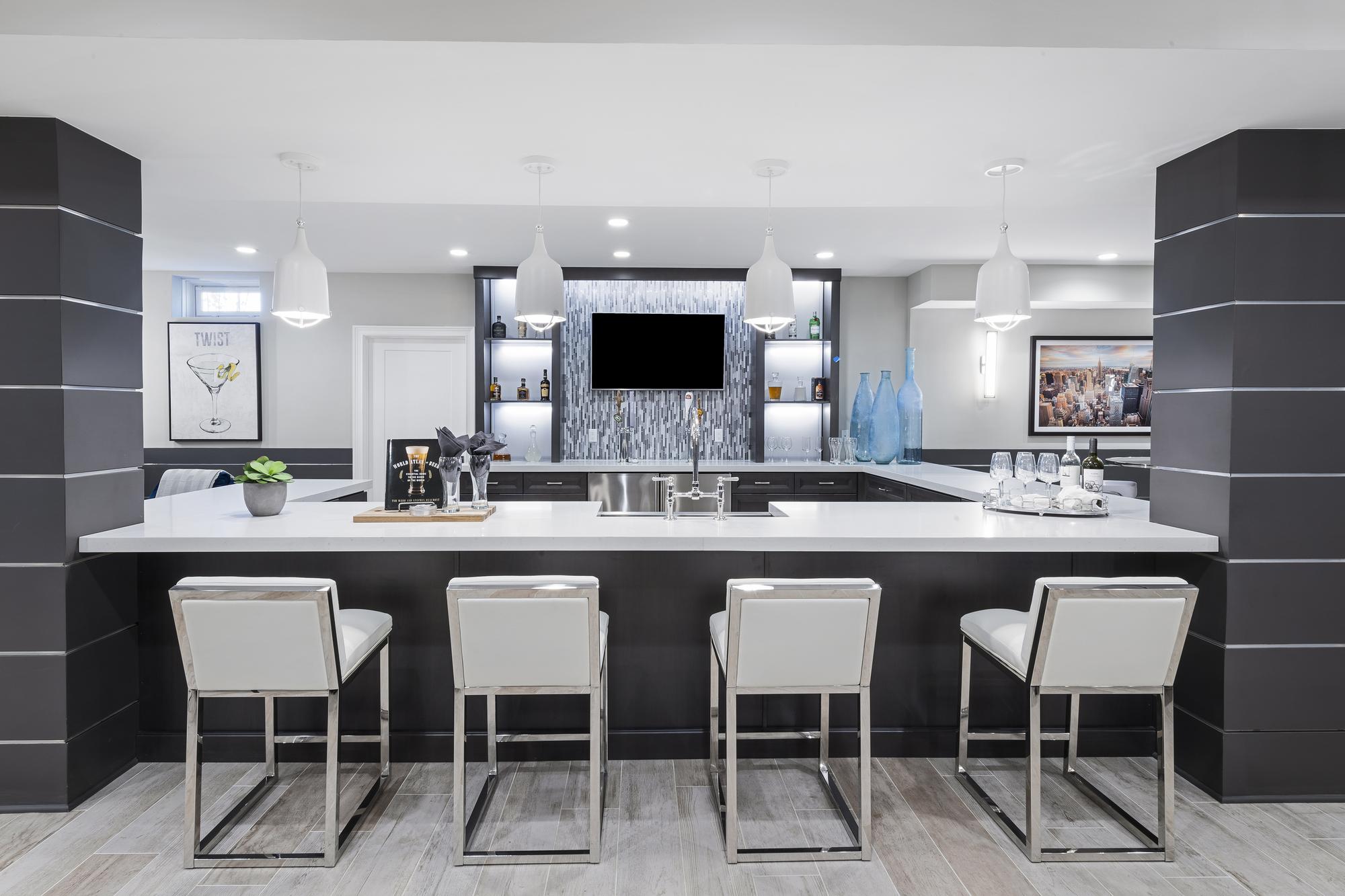
If you enjoy hosting gatherings with friends and family, creating a home theater in your basement could be a fantastic idea. This will provide you with a dedicated space in your home for entertainment. By incorporating a large-screen TV, cozy seating, quality speakers, and soundproofing, you can elevate the viewing experience for all. You can expect to invest $150+ per square foot to turn your basement into a home theatre.
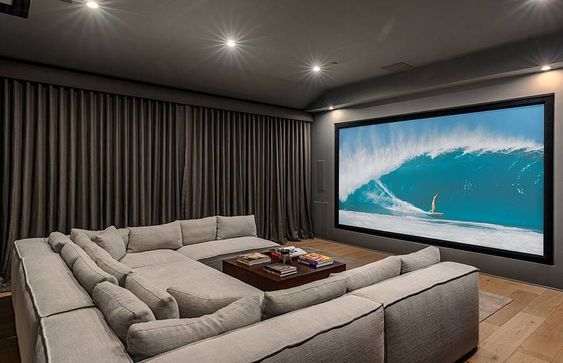
Custom bars crafted on-site offer the perfect blend of style and functionality, tailored to your unique preferences and space requirements. These bespoke bars seamlessly integrate into your basement, maximizing its potential. While prefabricated bars are a convenient option, available in a range of sizes and colors to complement your space, custom bars provide a truly personalized touch. Keep in mind that some assembly, such as wiring and plumbing for electrical and water features like sinks and lighting, may still be necessary. The cost of a custom home bar typically ranges from $25,000 to $50,000, offering a unique and personalized touch to your basement space.

A wine cellar is no small investment. While a wine cellar can be “stock”, they are typically highly customized projects expertly designed to fit the room. Residential wine cellars starts around $15,000 and can go up to $180,000.
According to fixr, the national average cost for a wine cellar is $33,750.
The lower end of the spectrum could be wine cellars that have been converted from a closet, and the higher end could be a fully personalized wine racking system.
Building a wine cellar includes a few things that influence the cost, including climate control, materials, and custom features.
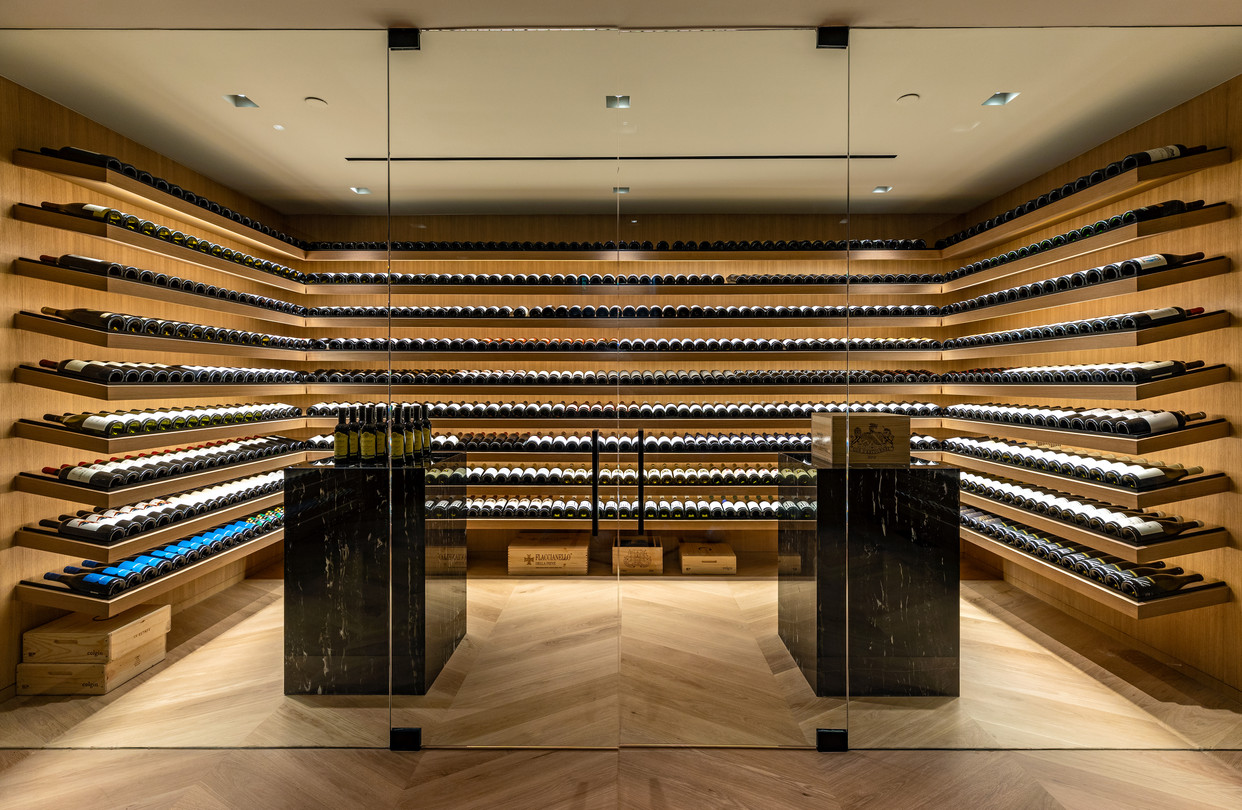
Indoor saunas tend to come with a higher price tag compared to outdoor saunas. The cost of setting up a sauna can vary significantly, depending on the size of the space and the necessary equipment. Typically, saunas range from 4 feet by 4 feet to 8 feet by 12 feet, with an average width of 8 feet. An 8 feet by 5 feet sauna can comfortably accommodate four individuals. Constructing a sauna for five to seven people could cost approximately $15,000.
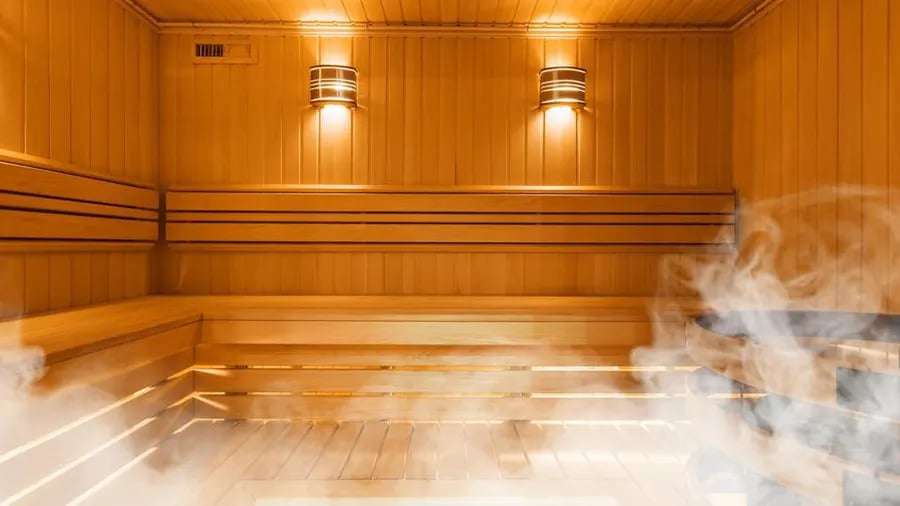
When adding a legal basement apartment, having a separate entrance is crucial for both safety and privacy reasons. It not only provides a sense of independence for the tenants but also ensures compliance with building codes and regulations. A separate entrance also adds value to the property and makes it more appealing to potential renters or buyers. So, when considering converting your basement into a rental space, be sure to prioritize the installation of a separate entrance as part of the process.
The average price range for a walkout basement in Canada is $15,000 to $50,000.
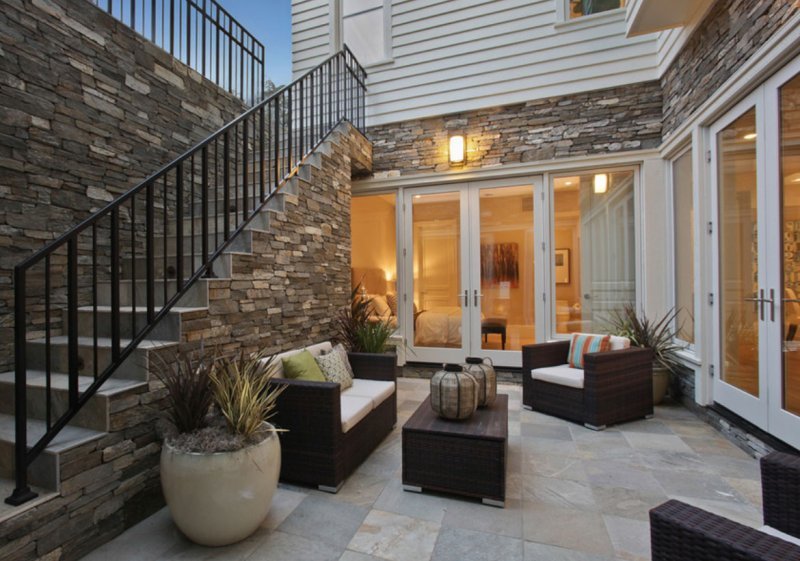
A basic basement finish typically includes essential features like insulation, standard lighting, and basic flooring. Costs can vary, but on average, you might expect to spend between $80K and $150K. For more details on what a basic finish entails, check out our blog post on basic basement renovations.
Mid-range renovations offer better materials and more customization than basic finishes, while high-end renovations include luxury materials and custom designs. The price gap can be significant, with mid-range projects costing around [insert range], and high-end projects starting from [insert starting price]. Learn more about what differentiates these tiers in our detailed comparison article.
We strive for transparency in all our pricing. However, unexpected issues like structural repairs or code upgrades can arise. We always communicate potential additional costs as soon as they're identified. For a breakdown of common unforeseen costs, visit our blog on hidden remodeling expenses.
Yes, the size of your basement is a major factor in the overall cost. Larger basements require more materials and labour. To understand how size affects cost, read our guide on basement size and renovation pricing.
DIY can reduce costs, but it's important to assess your skills realistically. Some tasks, like basic demolition or painting, can be handled by homeowners, but more complex work should be left to professionals. For tips on what you can DIY, check out DIY basement renovation guide.